Tube Making Machine
SuperbMelt Professional Gold, Silver, Aluminum Metal Tube Making machine
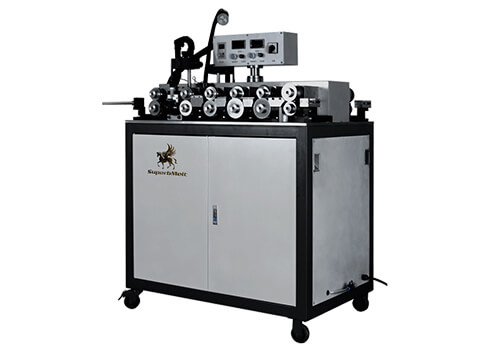
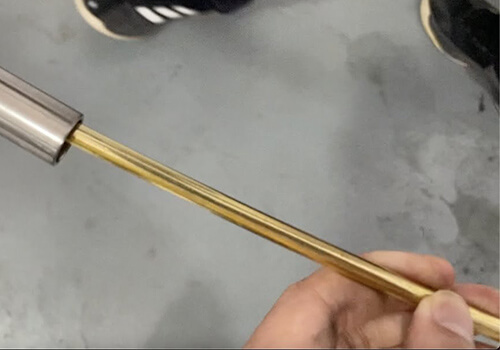
The hollow tube forming machines from SuperbMelt are created to make it simple and effective for you to produce tubes of all different shapes and sizes. SuperbMelt hollow tube forming machines specialize in creating various metal hollow tubes, including hollow gold, silver, copper, and aluminum tubes.
Metal tubing may be produced using SuperbMelt’s tubing equipment for a variety of uses, such as manufacturing, construction, and jewelry. Our equipment is made to last, with long-lasting components and meticulous engineering to guarantee reliable results each and every time.
| Model number | SPB-DHW-2 |
| Power | 4kw |
| Voltage | 3 phase 220V, 50/60Hz |
| Diameter | 3.2mm (Personalized) |
| Thickness | 0.32 -0.5mm (Personalized) |
| Efficiency | 1000 – 2000mm/min |
| Control method | Switch control |
| Size | 890*1000*1380mm |
| Weight | 520kg |
A piece of machinery called a copper tube producing machine is used to create copper tubes in a variety of forms and sizes. The machine converts copper rods or billets into seamless or welded copper tubes using a mix of processes, including heating, rolling, and drawing. In the plumbing, HVAC, and refrigeration sectors, where copper tubes are widely utilized, these devices are crucial.
A top-of-the-line copper tube manufacturing equipment from SuperbMelt is effective, dependable, and simple to operate. Our hollow tube forming equipment is outfitted with cutting-edge technology to guarantee accurate and reliable outcomes. Our machine can accommodate a variety of manufacturing demands since it has adjustable choices for tube diameter, thickness, and length.
By purchasing a copper tube producing equipment from SuperbMelt, you can optimize your production workflow, boost productivity, and guarantee the finest quality output. To find out more about our copper tube-making machine and how it may help your company, get in touch with us right now.
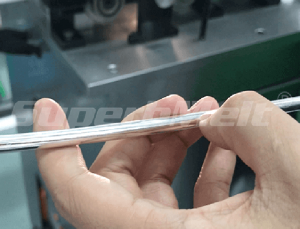

Metal Tube Making Machine
A sort of machinery called a metal pipe producing machine is used to create different kinds of metal pipes. Various metals, including gold, silver, steel, copper, aluminum, and brass, can be processed by the equipment. It is employed to create tubing in a range of diameters and forms in a number of sectors, including jewelry, construction, automotive, and HVAC.
Metal tubes are formed using a variety of methods, including welding, rolling, and bending, by metal tube forming machinery. Additionally, it is capable of numerous processing tasks including drilling, punching, and cutting. Metal tube production equipment from SuperbMelt creates hollow metal tubes by welding and extrusion.
A metal pipe producing machine can boost productivity and cut expenses, which is one of its key advantages. It can make a lot of metal tubes more quickly than the old-fashioned ways. Additionally, the machine provides a high degree of precision and accuracy, guaranteeing that every tube produced meets the necessary standards.
Utilizing a metal pipe forming machine also lessens material waste, which is an advantage. By efficiently cutting and shaping metal, the machine maximizes the utilization of raw resources. By doing so, waste is minimized and expenses are kept to a minimum.
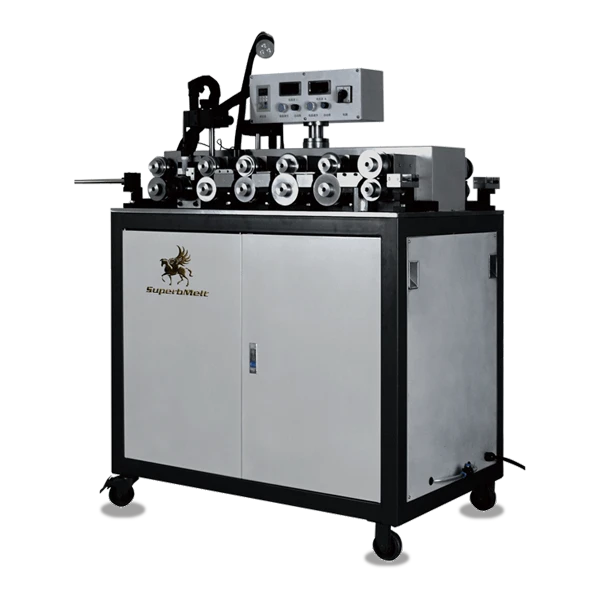
Why SuperbMelt Hollow Tube Forming Machine



Helpful Resource For Your Reference ( An expert about SuperbMelt hollow tube forming machine )



More Gold Melting and Casting Machinery For Your Choice
Any Question About SuperbMelt Hollow Tube Forming Machine
About Tube Making Machine FAQ
A tube mill is a device that shapes metal strips into tubes and then welds the ends together to create tubes or pipes. A number of sets of rollers gradually shape the metal strip as it is passed through them. The strip’s edges are then heated and joined by welding to form a continuous tube or pipe. Steel pipes are frequently produced at tube mills for a variety of sectors, including oil and gas, automotive, construction, and a wide range of pipe diameters and thicknesses.
Extrusion equipment used to make plastic pipes
Machine for rotating molding that produces metal pipes
Mandrel milling equipment is used to make seamless steel pipes.
For the manufacturing of welded steel pipes, a pipe welding machine
For the manufacturing of elbows, an elbow-forming machine
Pipe benders are used to produce pipes with certain bends and forms.
Metal tubes made by SuperbMelt tube-making machine include copper, gold, and silver tubes.
Each equipment in the steel pipe manufacturing process has a specific function and is made to manufacture steel pipes that are effective and of high quality.
In the hot extrusion method, a billet of stainless steel is heated and then pushed through a die to shape it into a tube.
A stainless steel billet is heated before being pushed through a succession of dies in the cold drawing process, which reduces the diameter and length of the billet.
Tubes that have been welded together can also be made of stainless steel. In the production of tubes, laser welding and TIG (tungsten inert gas) welding are both employed.
Pipe that is seamless is produced using a mix of cold drawing and hot extrusion. The procedure entails heating a billet of stainless steel, which is afterwards punctured by a mandrel to create a hollow tube. Cold drawing is then used to further decrease the tube’s size.
Finishing: To attain the necessary surface finish and dimensional precision, the pipe must go through a number of finishing operations after it is made, including heat treatment, polishing, and cleaning.
The intended form and characteristics of the completed product determine the steel pipe manufacturing process. But first, a quick rundown of the procedures:
To create billets or billets, steel is first melted in a furnace and then poured into a continuous caster.
After being rolled into sheets or strips, the billet or billets are then fed into machinery that create pipes.
Steel is formed into pipe using one of many techniques using pipe-making equipment. The production of seamless pipes using a mandrel to pierce a solid billet or billet, which is subsequently rolled into seamless pipe, is one popular technique. Another technique is called “welded tubing,” which entails joining the edges of flat steel strips into a tube by welding.
The pipe is heat treated after it has been manufactured to improve its strength and ductility. In order to do this, the pipe must first be heated to a high temperature before being quenched in oil or water.
The tube is next put through a series of quality checks to determine its size, surface polish, and mechanical characteristics.
Several machines are used in various operations during pipe manufacture. Among the equipment used in the production of pipes are:
Electric resistance welded (ERW) tubes are created using this machine, the electric welded tube mill.
The seamless tube mill is a device that creates seamless tubes.
Cold drawing table: This device is used to draw pipes to lengthen them and lower their diameter.
Pipes are tested using a hydrostatic testing equipment to see whether they are leak-free and fulfill the necessary quality requirements.
Pipe Threading equipment: To thread pipes for simple installation and connection, use this equipment.
This device, called a pipe bender, is used to bend pipes into the correct angles and forms.
Pipe Coater: This device coats pipes with a protective layer to ward off corrosion and improve their toughness.
Depending on the type of pipe being manufactured and the manufacturing technique being employed, several equipment are used in pipe fabrication.
A pipe machine, often called a tube mill, progressively shapes flat metal sheets or strips into a cylindrical shape by passing the material constantly through many pairs of rollers. The metal sheets’ edges are joined by welding to create a seam, which is then sent through a welding machine to produce a continuous weld. After welding, sizing rollers are used to shape and size the tube to the appropriate specifications. After being cut to the necessary length, the tube may next go through additional processing procedures like heating, smoothing, or inspection. Depending on the kind of pipe being made and the particular needs of the producer, the precise procedure and equipment might change.

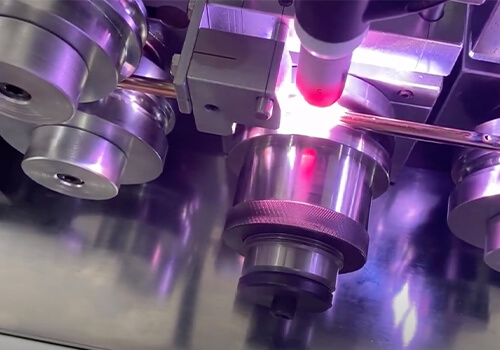
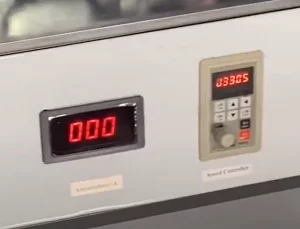
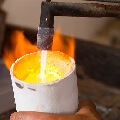
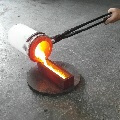
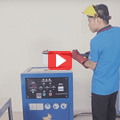

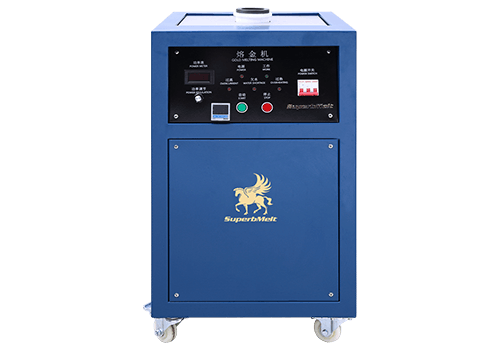
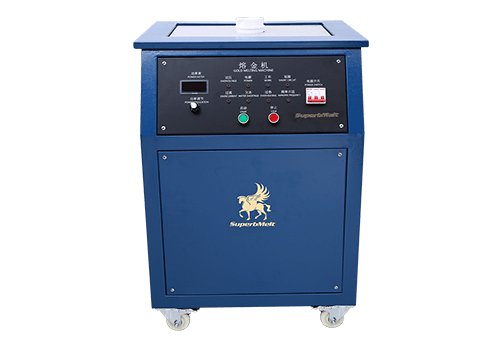
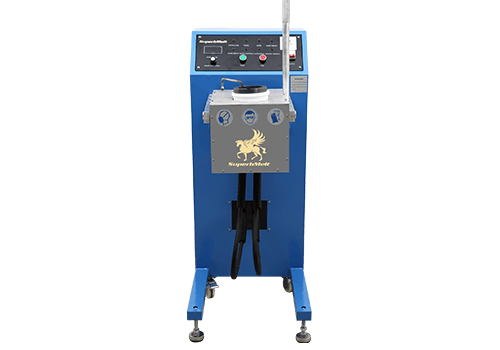
 © Copyright 2008-2021 Superb Electromachinery Co., Limited
© Copyright 2008-2021 Superb Electromachinery Co., Limited